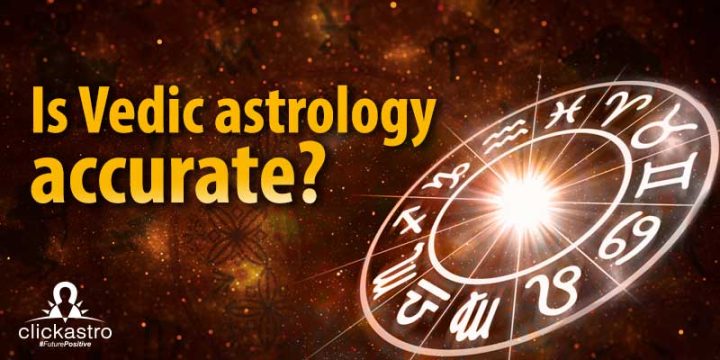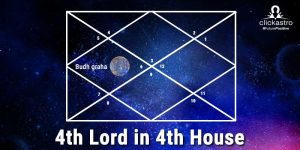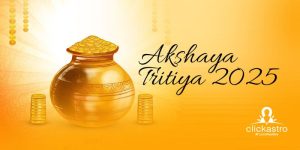Recently my teenaged child was reading through an article about astrology and turned around to ask me a curious question “Is it true that we can understand our future through Vedic astrology?”
Well, it set me thinking too. I then explained to her that we can understand our future to a certain extent with the help of astrology. Further, I told her how our Jyothish Shastra evolved and how the traditional Vedic astrological system was referred to by our seers, kings, politicians, and common people alike in the early days.
We talked about how during recent times, people started turning to astrology to overcome the blows that the pandemic inflicted upon them. I gave her examples of how flourishing businesses ran into losses and had to shut down leading to people being laid off not just in India but across the world. We discussed at length about how every aspect of our life had changed to a new normal, thanks to Corona.

Then we talked about how people, with the help of Vedic astrology, learnt to seize opportunities and paved the way to success. People have become aware of the new avenues that are opening up with the help of astrology. They have started seeking alternative ways to better their lives. But to understand what will be good for them they have started seeking astrological advice.
She then asked me about the authenticity of astrologers and how they may misuse the talent they have. I told my daughter of how our family astrologer had once called me up to ask how the pandemic was treating our family. I informed him that it wasn’t good. He told me that he had been quite busy as a lot of people were seeking his help for predictions. They were all ways to overcome the difficulties posed to them by the pandemic. So he had been quite busy guiding them on ways to overcome their financial distress. He then went on to suggest some remedies that has helped my family recover.
This incident helped my daughter get over her doubts regarding astrology. She understood that all astrologers were not individuals who created fear among their believers simply for financial gain. She now knows that there are astrologers who are caring individuals who do their job in the most positive way possible. But this discussion with my daughter left me with some thoughts.
A question that arises often is about the accuracy of Vedic astrology. People wonder if it is more advanced than all other forms of astrology and often question how astrology helps humans understand their life and future. Well, to answer these questions let us explore what astrology and Vedic astrology represents.
Indian astrology
Astrology is both an art and a science. It is divided into two branches – Western astrology and Vedic (Indian) Astrology. Each has its own set of principles. While the primary function of both of these branches is to reveal the aspects of the life of an individual so that their sufferings, sorrows and bad luck can be minimised, astrology opens a world of potential possibilities to be explored.
Astrology has been practised in India since the Vedic period and it has also been documented in the Vedas. The Vedas, which are the foremost scriptures of Hindu religion, mention Vedic astrology as the study of how planetary movements can impact the life of an individual. Vedic astrology is considered to be the eye of the Vedas. And, from ancient times has guided individuals who felt lost and confused in their life’s journey.
What makes Vedic astrology accurate?
Vedic astrology is a moon-based astrological prediction system and thus covers all aspects of one’s life. It uses the Vimshottari Dasa system, analysing the positions of the planets and how they impact our lives. Vedic astrology considers all the planets, nakshatras, and fixed zodiac signs, positions and movements and their influence on human life. This makes Vedic astrology more accurate and dependable.
Vedic astrology is also considered to be an advance astrological system. This system is based on complex mathematical calculations and, therefore, helps in accurate and astute predictions. Vedic astrology has various components including Nakshatras, Dasa, Apaharas, Divisional charts, etc. These provide deep analysis and insight into one’s life. This makes it the most accurate among all astrological principles.
Vedic astrology believes that all planets move in accordance with the Nirayana system. For accurate predictions, the system conducts a comprehensive analysis of the natal chart including the dasas, apaharas, planetary transits, and how they influence us in real-time. All these factors indicate the accuracy and preciseness as well as the detail-oriented methods, tools and practice of Vedic astrology making it the most reliable and advanced form of astrology.
The branches of Vedic astrology
Vedic astrology is divided into three main branches –
- Siddhanta (astronomy) studies astronomy and its application to astrology.
- Samhitha (mundane astrology) covers mundane astrology that aids in predicting important events related to countries or provinces such as wars, earthquakes, political events, astro meteorology, financial standing, Vastu Shastra (related to the construction of houses or other buildings), animals, omens, etc.
- Hora or predictive astrology is again differentiated into various styles or sub-branches. These include :
- Jaatak Shastra/Hora Shastra that aids in predictions based on the individual’s horoscope.
- Muhurta – selecting the auspicious time to start a new activity and gain maximum fruition in such activities.
- Swar Shastra – Predictions based on names and sounds.
- Prashna (Horary astrology) – predictions based on the time when a query is posed to the astrology.
- Ankajyothisha (Numerology) – a branch of astrology based on numbers.
- Nadi Shastra – an ancient treatise that provides detailed predictions for all individuals.
- Tajik Shastra/VarshaPhala – astrology based on annual solar transits.
- JaiminiSutras also called Upadesha sutras – An unconventional method of predicting the timing of events attributed by Maharishi Jaimini.
- NashtaJatakam (Lost horoscopy)- a method of constructing the horoscope using prashna.
- Streejatak (female astrology) – this is a unique branch of astrology that deals with astrology for female natives for all of their important life events such as marriage, conception, pregnancy, delivery, married life, prosperity, jewels, ornaments and the prosperity and adversity of children, etc.
What does Vedic astrology tell you?
Vedic astrology analyses the planetary motions and positions with respect to time and how it influences human life and other entities on earth. While early Vedic astrology was only based on movements of planets with respect to stars, later it evolved to include zodiac signs as well.
Vedic astrology considers 27 constellations consisting of 12 zodiac signs, 9 planets, and 12 houses, with each house and planet representing a certain aspect of our life. Depending on when and where an individual is born, the 12 signs are distributed among 12 Houses or Bhavas and the nine planets are positioned in various Houses. This is represented by a chart known as the natal chart or the horoscope. Vedic astrology thus helps to interpret the meaning of arrangements of the signs and planets and how it influences the individual.
Vedic astrology emphasises one’s karma and dharma. It provides an insight into the personal dharma or the life path of an individual. Also, it aids in revealing our distinctive and innate gifts and challenges and it guides us in understanding our relationships better, especially with our family, friends, and life partner. This fundamental understanding is the key to relieving any form of stress and emotional upheavals in our life. It helps make life more harmonious and easy.
The approaches adopted by Vedic astrology is based on planet retrogrades, sun signs and moon signs. It applies the proposition that every planet has its own individual set of aspects, strengths and weaknesses that influence an individual’s life to a great extent. Compared to Western astrology, Vedic astrology charts are calculated using the sidereal system which observes the changing and observable constellations, whereas Western astrology is based on the fixed position of planets.
What is Vedic astrology good for?
Hindu teachings emphasize that life is meant for spiritual growth, which is in part aided by one’s karma –every thought and action has a corresponding reaction. The Vedas describe that a person’s karma is directly related to the positions of the stars and planets. Vedic astrology thus helps one to understand their karma by analysing the planetary positions and guiding the individuals towards the right path.
Vedic astrology is also known as the “science of fate”. It is used to interpret every aspect of one’s life, including future success of an event such as marriage, moving into a new home, starting a business venture, buying assets, etc. In the past, it was used as a way of predicting outcomes of battles in the war. It was considered for important constitutional decisions, and even for any matters associated with temples, such as construction, placement of the idols, etc. Thus rulers would often employ the services of astrologers to provide them with a better insight in running their kingdoms and taking the finest care of their subjects.
Are online horoscopes accurate?
Nowadays, people depend on astrology websites to get their horoscopes. Though there is a general apprehension regarding the authenticity of such sites, the reviews of the products have shown to be positive. In the current situation, when Covid has caused a lull in our activities and interactions, online astrology is the best option available. Even well known astrologers use software produced by such organisations. The best part about online astrology is that they are error-free. Even a small mistake in the calculation can offset the predictions by a great degree. So when complicated calculations, as required for accurate astrology, are done by computers, we can rest assured that the predictions would be accurate and precise.
Online horoscopes are dependable and there are many varieties available. We can get specialised reports for
career and business, or we can get a report that details our
wealth and fortune possibilities. Some of the websites, like Clickastro, also provide
free horoscopes.
Marriage matching, which studies two horoscopes for compatibility for marriage, and
in-depth horoscope, which studies an individual’s life in depth, are also available.
Get Your
Kundali Matching Report
What do Vedas say about astrology?
The ancient existent text on Jyothisha is the Vedanga jyothisha and is known to be existent in two editions – one linked to Rigveda and the other linked to Yajurveda. The Rigveda version comprises 36 verses while there are 43 verses in Yajurveda of which 29 verses have been borrowed from Rigveda. It is observed that that the earliest recorded use of astrology in India was during the Vedic period and it is listed as a Vedanga or branch of the Vedas in the Vedic religion.
Vedanga Jyothisha is the only work in this class that has survived and explains the rules for tracking the movement of the sun and the moon in a context of a five-year intercalation cycle. It is believed that Indian astronomy and astrology developed together. The earliest thesis on Jyothisha, the Bhrigu Samhita, was compiled by Sage Bhrigu during the Vedic period. Sage Bhrigu is also known as the Father of Hindu astrology and is one among the respected Saptarishis or the seven Vedic sages. The Saptarishis are also symbolised by the seven main stars in the Ursa Major constellation.
The Jyotisha text, Brahma Siddhanta, believed to be composed in the 5
th century CE emphasises the use of the movements of the planets, Sun and Moon to keep time and
calendar. This text also includes trigonometry and mathematical formulae supporting its theory of orbits and predicting the planetary positions, calculating the relative mean positions of celestial nodes and apsides. This text is also noteworthy for presenting very large integers such as 4.32 billion years as the lifetime of the current universe. The ancient Hindu texts on astrology discussed time-keeping but failed to mention astrology or prophecy. Written on the pages of the tree bark, the Bhrigu Samhita is said to contain five million horoscopes comprising of all those who have lived in the past or will live in the future.
To answer questions about Vedic astrology, it is necessary to deep dive into the field and to experience it for oneself. If you wish to understand Vedic astrology further, please go through our
blogs on the topic.









Excellent post, happy to read this article. know your future with us